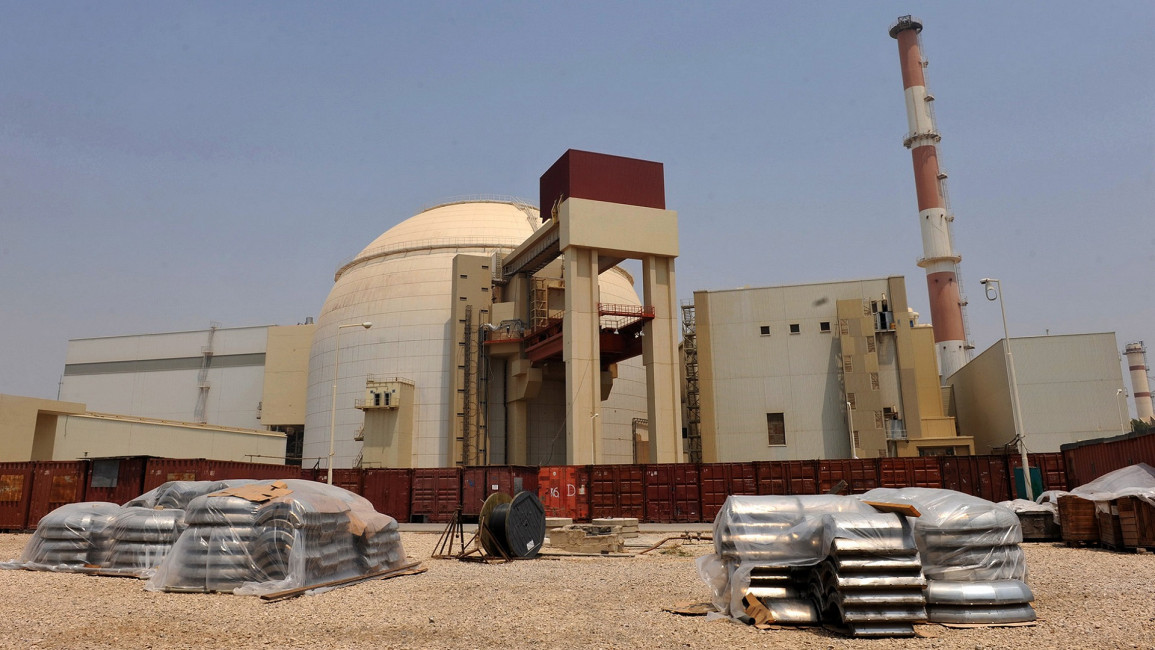Iran backtracks on plan to exceed uranium enrichment limit agreed by nuclear deal
Iran will not exceed a uranium stockpile limit agreed under a nuclear deal with world powers, contrary to what Tehran said earlier this month, a diplomatic source in Vienna said on Thursday.
"They won't exceed it today," the source told Agence France Presse, speaking on condition of anonymity.
The source suggested there might be a "political reason" for this, given intensified efforts by European governments in recent days to de-escalate tensions in the Gulf region.
There was no indication to suggest the agreed limit would be exceeded this weekend either, the source added, saying that Tehran can suspend its uranium enrichment activities at any time.
Iran said 10 days ago that it would surpass the agreed 300-kilogram (660-pound) reserve of enriched uranium on June 27 because it no longer felt bound by certain limits contained in the 2015 deal which the United States unilaterally pulled out of in May 2018.
Also speaking on condition of anonymity, an Iranian official said the reason the limit had not yet been breached was a "technical matter", not a political one, pointing to the fact that Thursday and Friday are the weekend in Iran.
He said that Iran's planned breaches of Joint Comprehensive Plan of Action (JCPOA – as the nuclear deal is officially called) limits could swiftly be reversed "if our demands are met".
"Our demand is to be able to sell our oil," he said, adding: "We used to sell more than $50 billion of oil [annually] before the US withdrawal -- that should materialise again."
If this did not happen, "there is not a single reason [for Iran] to stay in the deal anymore," the official said.
Economic war
While others have struck a gloomy note on the prospects of a breakthrough at a meeting on Friday between the remaining parties to the JCPOA, Iran's ambassador to the UN Majid Takht Ravanchi told reporters Thursday that he hoped "certain ideas can come forward and tangible results can be achieved so that we can reverse our decision".
Tehran has also threatened to start enriching uranium above the agreed purification level of 3.67 percent starting from July 7.
Under the landmark deal signed with world powers in 2015, Iran pledged to reduce its nuclear capacities for several years and to allow international inspectors into the country to monitor its activities in return for relief from international sanctions.
The deal set a limit on the number of uranium-enriching centrifuges, and restricted Iran's right to enrich uranium beyond 3.67 percent, well below weapons-grade levels of about 90 percent.
But the deal has come under severe strain since Washington pulled out of it last year and slapped new economic sanctions on the Islamic republic.
Speaking at a seminar on the effects of sanctions organised in Vienna by diplomats from Iran, Cuba and Venezuela, Iranian Deputy Foreign Minister Abbas Araghchi said Thursday: "We are in the middle of an economic war with the US, not a military war - yet."
"There will be no de-escalation unless there is a ceasefire in this economic war" which had been declared by the US, Araghchi said.
On Tuesday, in a gesture seemingly aimed at reining in tensions with the US, Iranian President Hassan Rouhani told French President Emmanuel Macron in a telephone call that Iran "never seeks war" with any country.
Macron, for his part, said on the sidelines of a G20 meeting in Tokyo that he would do "the maximum" to "avert military escalation" between Iran and the US.
US President Donald Trump said Wednesday he does not want a war with Iran, but warned that if fighting did break out, it "wouldn't last very long".



